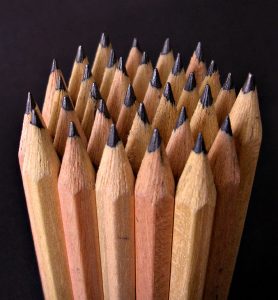What will new “Panel of Experts” say that hasn’t already been said about First Nations education?
 Am I alone in my curiosity as to whether this new “Panel of Experts … to improve elementary and secondary education outcomes for First Nation children who live on-reserve” will actually come up with anything especially new?
Am I alone in my curiosity as to whether this new “Panel of Experts … to improve elementary and secondary education outcomes for First Nation children who live on-reserve” will actually come up with anything especially new?
Recently announced by Indian Affairs Canada along with the Assembly of First Nations, the panel “will travel across Canada to hear views and opinions on how best we can improve and reform the governance and accountability of the First Nation education system.” It will then deliver its findings sometime in the summer of 2011.
Forgive me, but didn’t the Royal Commission on Aboriginal Peoples do that already, like, 14 years ago?
Indeed, the Commission itself noted how, after reviewing decades’ worth of studies on Aboriginal education (22 reports in all), a consensus of sorts has emerged on what is to be done to make things better, including:
• Aboriginal control of education
• School courses in Aboriginal studies, including history, language and culture
• Training and hiring of more Aboriginal teachers
• Inclusion of Aboriginal parents, elders and educators in the education of Aboriginal children
• Special support programs for Aboriginal students, for example, counselling, substance abuse education, remedial education and retention programs
• Aboriginal language instruction from pre-school to post-secondary education
• The resolution of federal, provincial and territorial jurisdictional conflicts over responsibilities, or recognition by the federal government of its funding responsibility for education
• Training Aboriginal adults for teaching, para-professional and administrative positions in education
• More emphasis on pre-school and kindergarten education
So, will this newest ‘Panel of Experts’ substantively help to move the prospects of First Nations children forward — or simply re-invent the wheel? Stay tuned.


To the recommendations above I would add:
1. School breakfasts and school lunches offered. Goals: ensure no student is distracted from learning by hunger. Ensure a “level playing ground” for all students.
2. After-school activities made widely available, centring on physical activities and life skills taught by Aboriginal elders from an Aboriginal perspective. Goals: Ensure students are fully occupied and cared for throughout the school and work day. Engage elders in the education of students.
All politicians want to put their stamp on the big initiatives. You, and many of us know that this travelling expert group will come up with the same ideas found in the RCAP and numerous scholarly and grassroots solutions. The Conservatives don’t want to just start implementing these solutions. They want to consult, because that’s the easiest way for them to say their doing something about it. If they were serious about raising the standards of education for First Nations, they already have an aresonal of thinkers, organizations, policy recommendations, and proposed legislation changes on the table. And unfortunatly, the AFN is going along with this show. If they were serious about being effective voices on education reform, they’d challenge this travelling panel and instead push for immediate policy, legislative, and programming change. But not many policitians, native and non, can resist the razzle dazzle…
It might help if the AFN first grew some gonads. That might help. Then it could point to the RCAP report and read the string of reports on Indian Affairs from the Auditor General (see more on that elsewhere on this site). Then it might help if the AFN asked itself why it would get itself entangled in a process with the Congress of Aboriginal Peoples or Inuit Tapiriit Kanatami or Métis Nation of Canada to redefine the role of INDIAN Affairs when everyone knows the aim of the federal government has been to dump its constitutional responsibilities for “Indians… and lands reserved for Indians”?
But I think that might be a bit too much to ask. Maybe just start with growing a pair. 😉
Just posted the following in response to the article on my facebook—
Nice list of recommendations…of ‘how to re-invent the wheel’ :p nothing in it that you can’t find in any article, essay, discussion, etc. etc. about indian education. If it’s not working today and wasn’t working yesterday it won’t work tomorrow. You can pump all the money you want into the current education system in our communities, but so long as the majority of our children are coming from and going home to poverty, malnourishment, alcoholism, depression, abuse (we know what kinds), family violence and dysfunction, etc., and rarely IF EVER getting so much as a bedtime story, then you can keep waiting for your miracle. INAC and AFN and their ground-breaking panels of experts lol
Just posted this in response to the article on my facebook—
Nice list of recommendations…of ‘how to re-invent the wheel’ :p nothing in it that you can’t find in any article, essay, discussion, etc. etc. about indian education. If it’s not working today and wasn’t working yesterday it won’t work tomorrow. You can pump all the money you want into the current education system in our communities, but so long as the majority of our children are coming from and going home to poverty, malnourishment, alcoholism, depression, abuse (we know what kinds), family violence and dysfunction, etc., and rarely IF EVER getting so much as a bedtime story, then you can keep waiting for your miracle. INAC and AFN and their ground-breaking panels of experts lol